Now online! Global analysis of protein turnover dynamics in single cells: The SC-pSILAC method enables single-cell measurement of both protein abundance and turnover, providing notable advances in the depth and versatility of proteomic technologies.
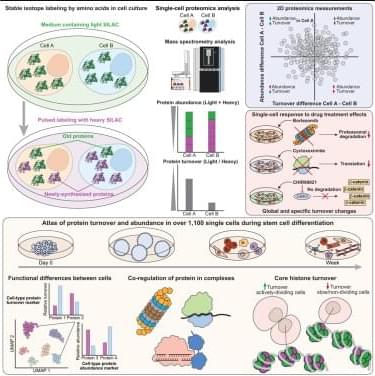

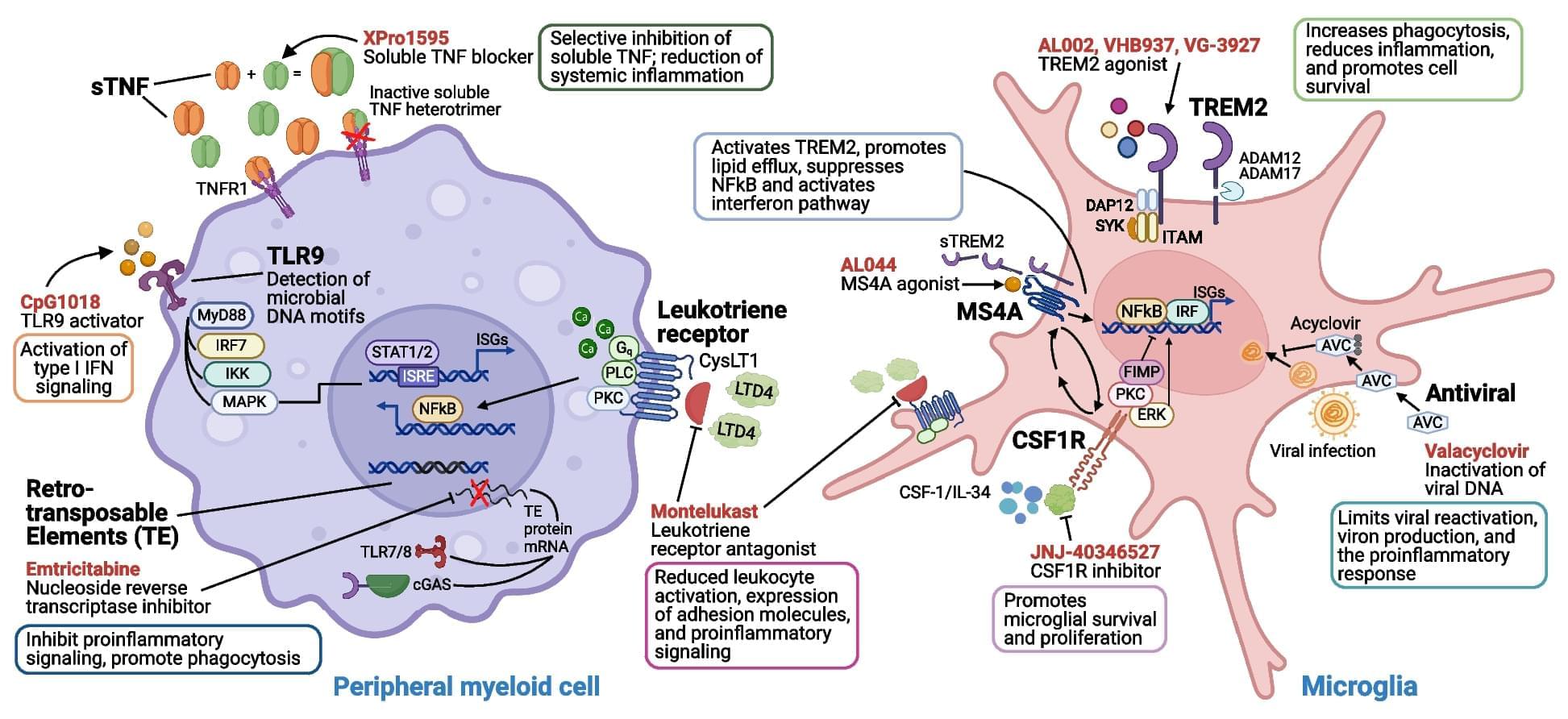
Immune mechanisms play a fundamental role in Alzheimer’s disease (AD) pathogenesis, suggesting that approaches which target immune cells and immunologically relevant molecules can offer therapeutic opportunities beyond the recently approved amyloid beta monoclonal therapies. In this review, we provide an overview of immunomodulatory therapeutics in development, including their preclinical evidence and clinical trial results. Along with detailing immune processes involved in AD pathogenesis and highlighting how these mechanisms can be therapeutically targeted to modify disease progression, we summarize knowledge gained from previous trials of immune-based interventions, and provide a series of recommendations for the development of future immunomodulatory therapeutics to treat AD.
1999/ 2000 documentary 56 minutes. Primal Eye/ Median Vision Theory of the early evolution of self referential consciousness and dreaming. Dir…
Scientists have identified more than 9,000 of these synthetic chemicals. Study reveals concerning link between everyday household products and childhood c


Magnesium is a common chemical element, an alkaline earth metal, which is highly chemically reactive and is very light (even lighter than aluminum). Magnesium is abundant in plants and minerals and plays a role in human physiology and metabolism. In the cosmos, it is produced by large aging stars.
Among its physical properties, while it is a good conductor of electricity, magnesium is not known to be a superconductor. Superconductors are particularly promising materials with the potential to revolutionize energy transmission, medical imaging, and quantum computing, and are defined by their ability to conduct electricity without resistance below a certain critical temperature.
Recently, with my colleague Giovanni Ummarino from Turin Polytechnic, I have started challenging the textbook paradigm that states only certain elements in the periodic table can be superconductors. In particular, my colleague and I have shown that the phenomenon of quantum confinement can turn non-superconducting elements into superconductors. Our research is published in Condensed Matter.
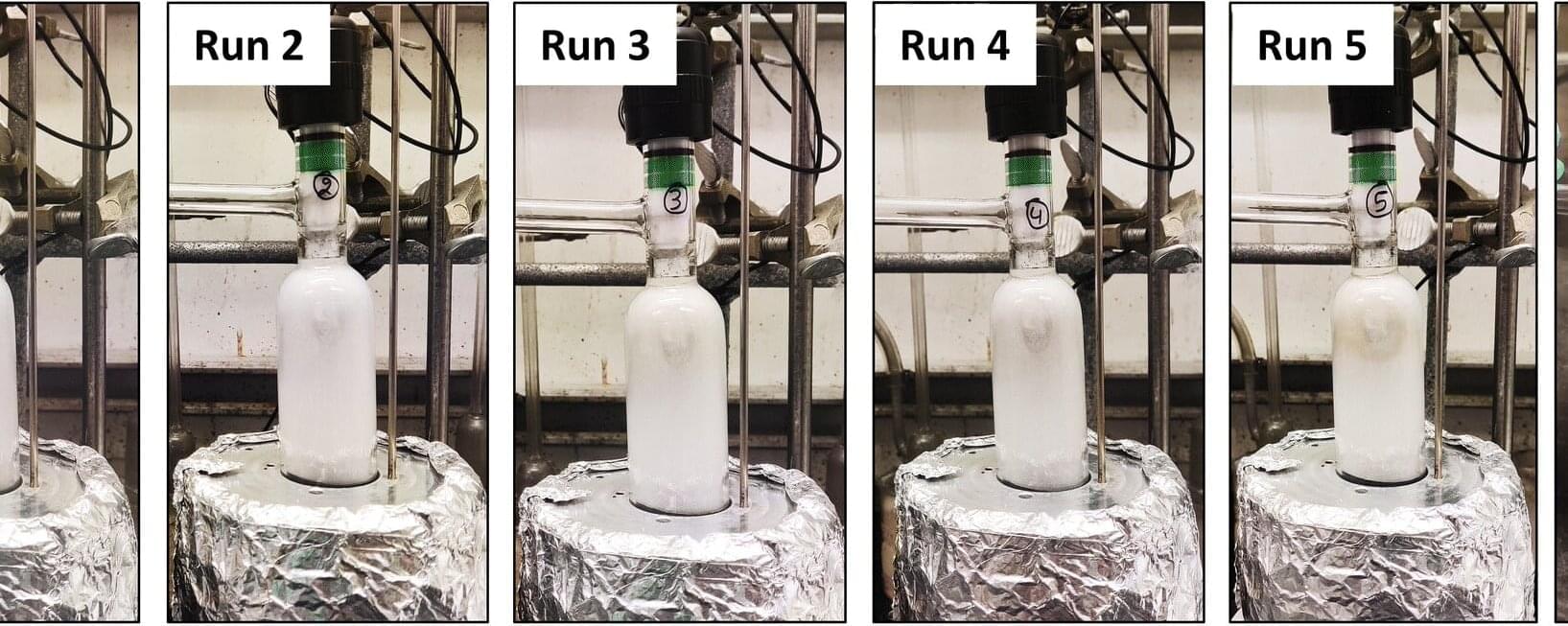
Harnessing moisture from air, Northwestern University chemists have developed a simple new method for breaking down plastic waste.
The non-toxic, environmentally friendly, solvent-free process first uses an inexpensive catalyst to break apart the bonds in polyethylene terephthalate (PET), the most common plastic in the polyester family. Then, the researchers merely expose the broken pieces to ambient air. Leveraging the trace amounts of moisture in air, the broken-down PET is converted into monomers—the crucial building blocks for plastics. From there, the researchers envision the monomers could be recycled into new PET products or other, more valuable materials.
Safer, cleaner, cheaper and more sustainable than current plastic recycling methods, the new technique offers a promising path toward creating a circular economy for plastics. The study was recently published in Green Chemistry.
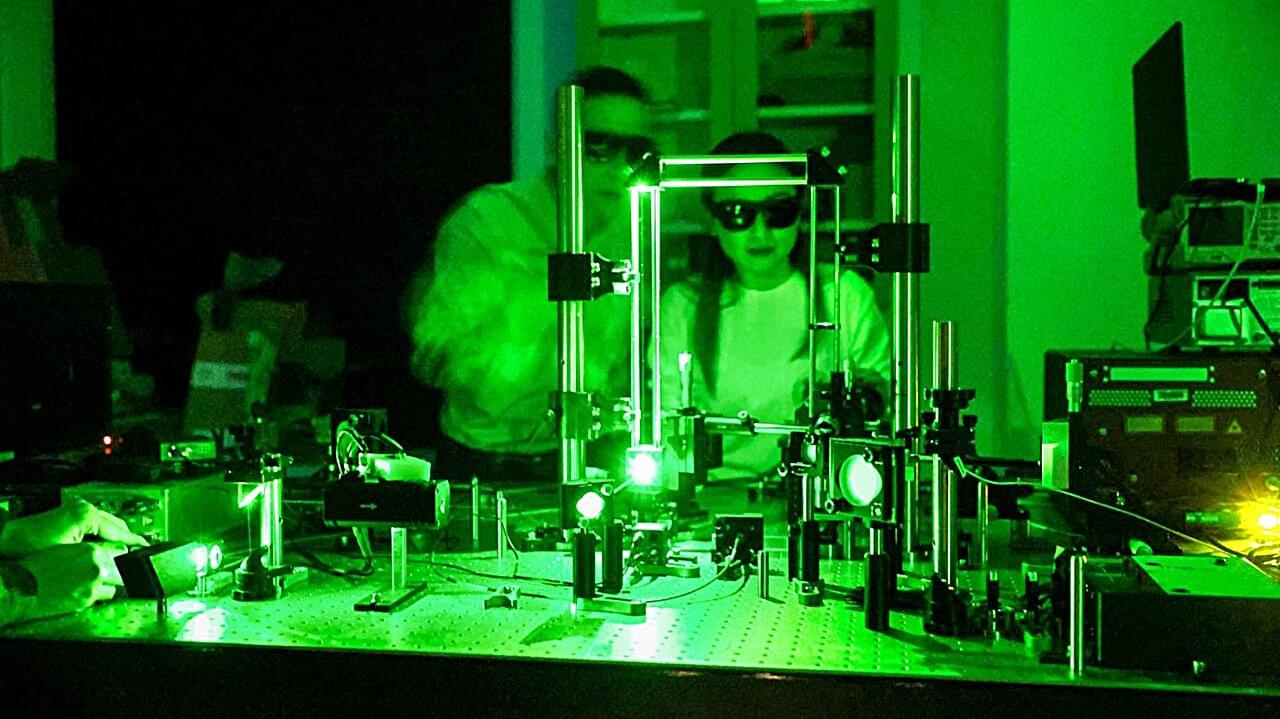
Faster isn’t always better when it comes to high-speed materials science, according to new Cornell research showing that tiny metal particles bond best at a precise supersonic speed.
In industrial processes like cold spray coating and additive manufacturing, tiny metal particles travel at extreme speeds and slam into a surface with such force that they fuse together, forming strong metallic bonds. This rapid, high-energy collision builds up layers of material, creating durable, high-performance components. Understanding how and why these bonds form, and sometimes fail, can help optimize manufacturing techniques and lead to stronger materials.
In a study published March 31 in the Proceedings of the National Academy of Sciences, Cornell scientists launched aluminum particles, each about 20 micrometers in diameter, onto an aluminum surface at speeds of up to 1,337 meters per second—well beyond the speed of sound—and used high-speed cameras to record the impacts.
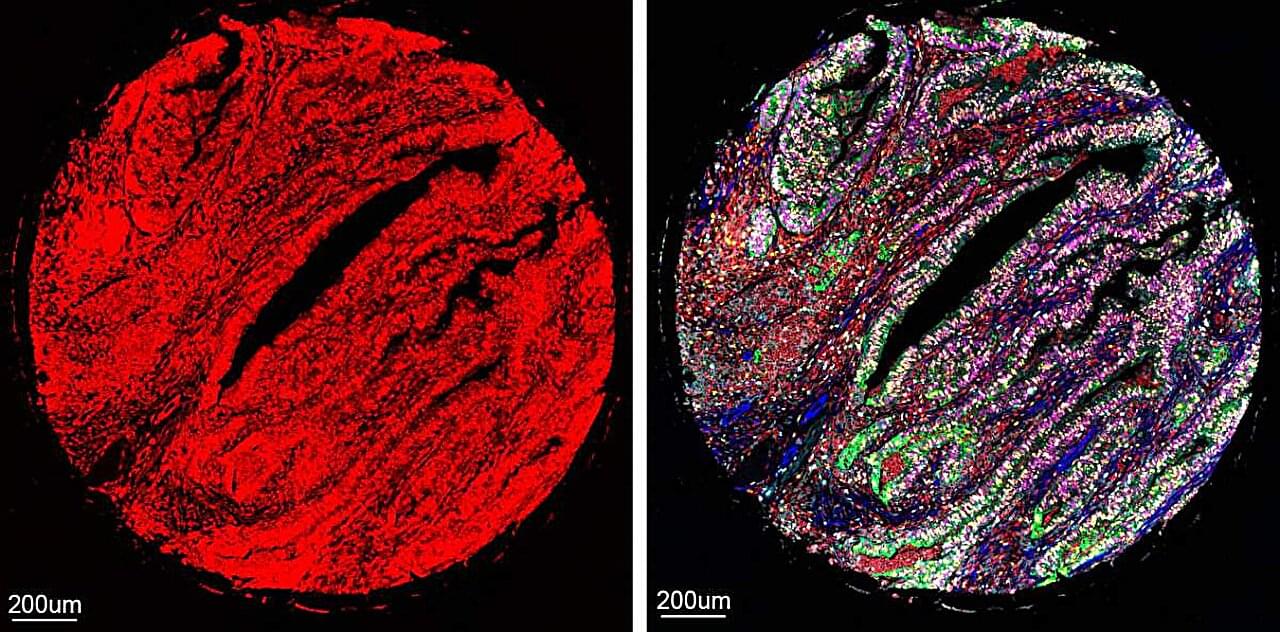
AI systems already work their magic in many areas of biomedical science, helping to solve protein structure, discover hidden patterns in the genome and process massive amounts of biological data. Now, an AI-assisted technology developed at the Weizmann Institute of Science and published in Nature Biotechnology may grant researchers and physicians an unprecedented means of peering deep into the body’s tissues by making it possible to simultaneously view more proteins than ever before, in a tissue sample.
“To understand how any particular tissue works, it’s crucial to measure lots of its proteins at the same time,” says Dr. Leeat Keren of Weizmann’s Molecular Cell Biology Department, who headed the research team. “This gives us an idea of which cells are present in the tissue and how they communicate and interact with one another.”
Keren explains that this knowledge is vital to the study of disease processes. Cancerous growths, for example, contain, in addition to tumor cells, various other cell types, including healthy cells of the tissue the tumor is growing on and of the immune system. The cellular makeup of the tumor and how those cell types interact with one another can determine the effectiveness of therapies or be used to predict which patients have a better prognosis and which are likely to develop metastases. Such findings, in turn, can lead to improved personalized treatments.
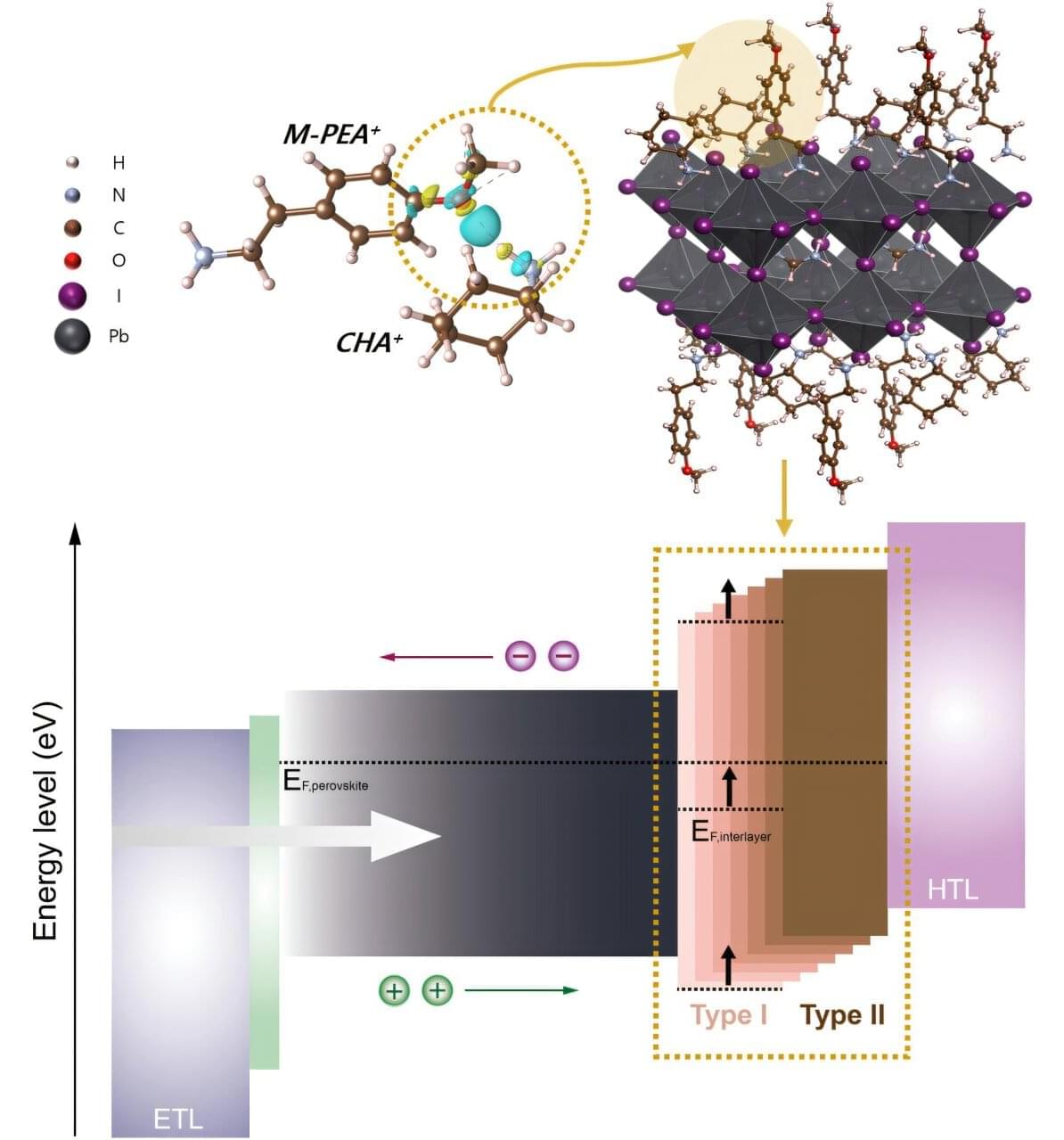
Unlike conventional silicon-based solar cells, perovskite solar cells (PSCs) are not only thin and lightweight, but can also be seamlessly applied to curved surfaces, like building facades and vehicle roofs. What’s more, they can be easily manufactured at room temperature using a solution process, leading to significantly reduced production costs.
However, for PSCs to achieve commercialization, it is crucial to develop technologies that maintain high efficiency over extended periods. A research team affiliated with UNIST has successfully made strides in this area. Their work is published in the journal Joule.
Professor Sang Il Seok of the School of Energy and Chemical Engineering at UNIST, along with researchers Jongbeom Kim and Jaewang Park, has developed an interlayer that leverages the specificity of organic cations on the surface of PSCs, simultaneously achieving high-efficiency and durability.